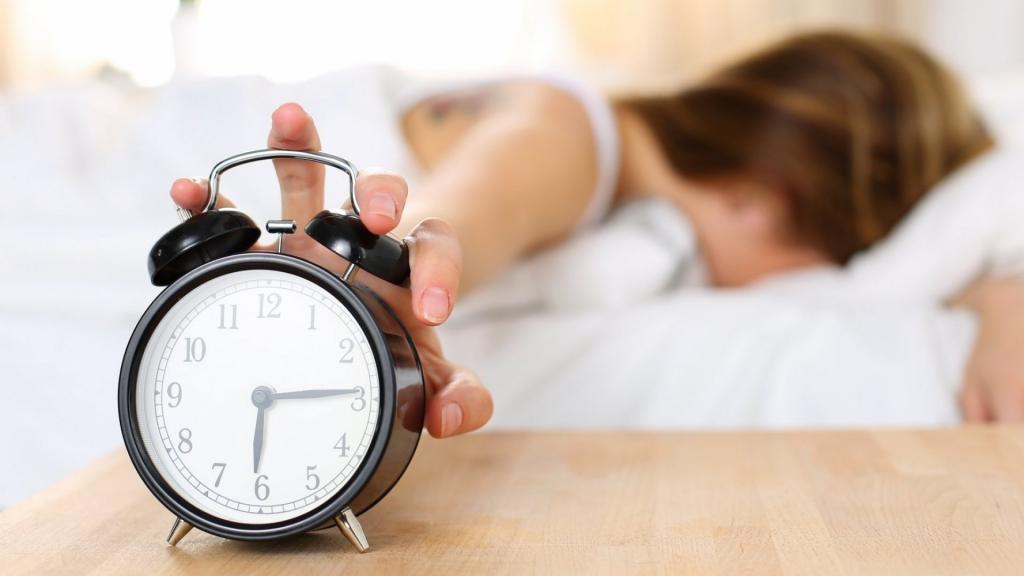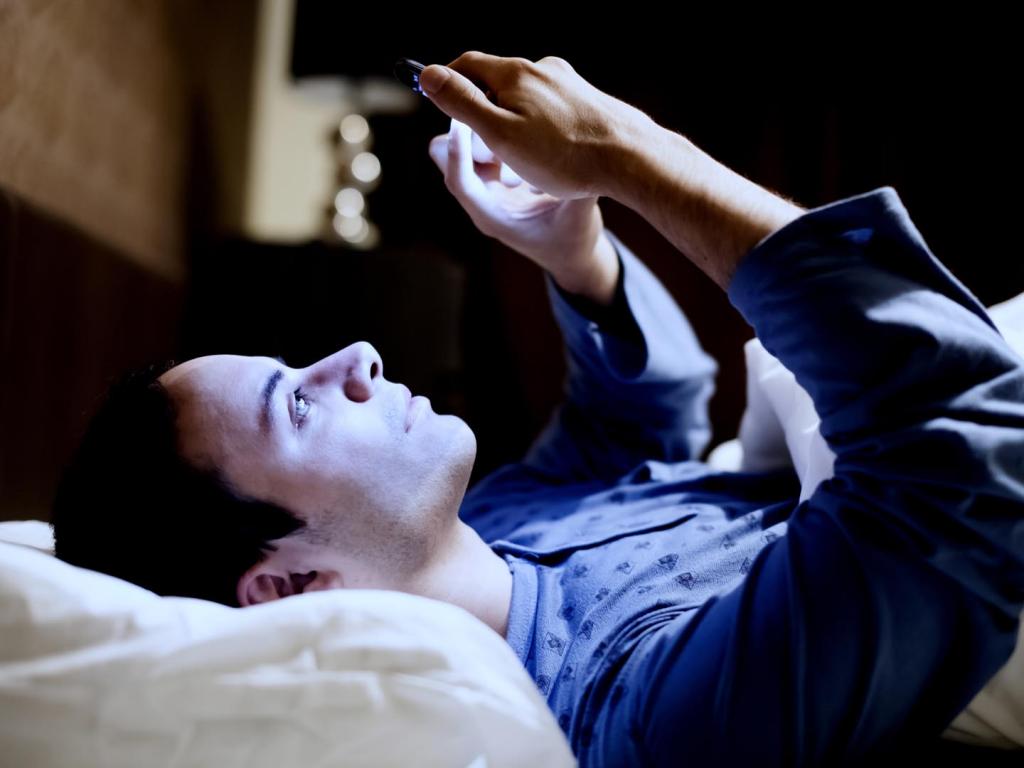It’s not uncommon for people to sacrifice sleep in order to meet a tight deadline, whether it’s for a school project, a test, or an essential business presentation. An all-nighter is the ultimate level of this sacrifice because it involves going an entire evening without sleep.
An all-nighter may seem beneficial at first glance because it gives you more time to work or study. Staying up all night, on the other hand, is detrimental to one’s mental, emotional, and physical well-being. Because of the negative impact on the following day’s performance, staying up late rarely pays off.
How Much Sleep Do Humans Need?
According to clinical assistant professor Andrea Goldstein-Piekarski at Stanford University, the amount of sleep a person requires might fluctuate over the course of their lifetime.

This is what we’ve learned from the National Sleep Foundation’s recommendations:
- In the first three months of life, newborns sleep 14 to 17 hours; in the fourth and fifth months, they sleep 12 to 15 hours, including daytime naps.
- 11-14 hours for toddlers
- 3-5 years: 9 to 11 hours; 9 to 13 hours (6-13 years)
- Youth: 8 to 10 hours (14-17 years)
- Adults need between seven and nine hours of sleep each night (18 to 64 years)
- 7-8 hours for the elderly (65 and older)
It’s important to note that Goldstein-Piekarski adds “there is not one prescription for everyone.” Individuals may require more or less sleep than the amounts listed above, depending on their health and other circumstances.
What Is an All-Nighter?
The term “all-nighter” refers to a person who does not go to bed at a regular time and instead works all night. Total sleep deprivation is the term used in the field of sleep science to describe such a prolonged period of not getting any sleep.
If you get up at 8 a.m. and then stay up all night, you’ll have experienced 24 hours of total sleep deprivation by 8 a.m. the following morning. This clock won’t stop until you’ve had enough sleep to shut it off.
Sleep deprivation from insomnia, which occurs when a person can’t get to sleep even when they have the opportunity, is not the same as an all-nighter.
Voluntary sleep deprivation is more commonly linked with all-nighters. They are frequently related to academic or professional obligations. It’s not uncommon for people who work night shifts and have daytime responsibilities to force themselves to stay up all night. However, in other situations, a person may choose to remain up all night for recreational reasons such as watching a television show or reading a book.
Can Humans Survive On No Sleep?
University of California, Berkeley postdoctoral fellow Eti Ben Simon tells Inverse sleep is just as critical to survival as food.
After 15 days of starvation or sleep deprivation, both animals and humans die, Simon claims.
According to her, researchers are normally only allowed to keep subjects up for two days in human sleep deprivation studies due to safety concerns.
The reasons for this are immediately apparent.
“People start experiencing illusions and hallucinations after around three days of little sleep,” Simon explains. People are distrustful of their hallucinations at this point and suspect something is amiss.
In the fifth or sixth day of sleep deprivation, they no longer doubt,” Simon explains. Symptoms of psychosis begin to appear when people trust what they see.
The state of being sane is “fragile,” she says.
How Does an All-Nighter Affect You?
Some of the long-term repercussions of all-nighters can be rather dangerous. Sleep is essential to the healthy functioning of the body, and a lack of sleep can have a negative impact on your mental and emotional health, as well as your physical health.

All-Nighters and Cognitive Function
Sleep deprivation has an immediate effect on a wide range of cognitive abilities and brain functions. Sleep deprivation affects the ability to focus and pay attention. A lack of emotional intelligence, as well as a sluggish response time, might be a result of a lack of sleep. Mental place keeping, the ability to follow a series of instructions or tasks, is harmed by sleep deprivation. Creative thinking and problem-solving are also hindered by this.
Memory is also hampered by a sleepless night. A temporary memory bank that we use for short-term purposes gets depleted as a result. In addition, even after returning to a regular sleep schedule, persons who go longer periods of time without sleep are more likely to develop false memories, impairing their ability to recall critical information in the long run.
Pulling an all-nighter has been linked to impairments similar to those associated with intoxication in numerous studies. A person’s mental function degrades to the level of someone with a blood alcohol concentration (BAC) of 0.10 percent after only 24 hours of sleep deprivation, according to the study’s authors (0.08 percent ).
Daytime sleepiness is a common side effect of extreme sleep deprivation. It’s normal for the brain and body to experience tiredness when they don’t get a chance to relax, as they are used to. As a result of sleep deprivation, you may experience microsleep, a small lapse in consciousness lasting only a few seconds.
After an all-nighter, mental performance is more inconsistent because of the difficulty of staying awake, and additional effort to stay awake may divert attention away from the activities at hand.
People who are sleep-deprived are prone to making a wide range of errors and blunders. Drowsy driving raises the likelihood of accidents, including possibly fatal ones. Doctors, nurses, pilots, and those who operate with heavy machinery are particularly vulnerable to workplace mishaps.
All-Nighters and Mood
In addition to impairing one’s ability to think clearly, staying up late increases one’s risk of developing a variety of mood disorders. Cortisol, a stress hormone, is linked to sleepless nights because it raises levels in the body. Anxiety, which is associated with sleep deprivation, has been shown to affect both mood and behavior.
After a night of no sleep, many other aspects of one’s emotional state are negatively affected. People are more prone to experience feelings of rage and anger, as well as depression and exhaustion, after pulling an all-nighter.
All-Nighters and Physical Well-Being
Physical health suffers as a result of being awake all night. When the body’s muscles and organs don’t have enough time to recuperate while sleeping, fatigue and low energy are more likely to occur.
An extra night of sleep deprivation raises pain sensitivity, which can either cause an acute pain episode or worsen an existing one.
Variable Effects of Sleep Deprivation
Not everyone experiences the negative consequences of sleep deprivation the same way or to the same amount as the rest of us.
Adults are better able to deal with the cognitive repercussions of an all-nighter than teenagers and young adults, according to research. Women seem to be better able to cope with sleep deprivation than males, yet recovering to normal sleep patterns may take longer for women.
There is a potential that a person’s genetics may have a role in how severely they are affected by a night without sleep, according to studies.
All-nighters might have a different effect on different people depending on their normal sleep patterns. People who are sleep-deprived, for example, may be more affected by the consequences than those who have a regular sleep schedule. However, even those who get extra sleep in the days leading up to an all-nighter show symptoms of cognitive deficiencies when they are awake for long periods of time.
How Does an All-Nighter Affect Your Sleep Patterns?
If an all-nighter is a forerunner to poor sleep habits, the consequences can be far more dire. Consistent sleep schedules are recommended by experts since they help to standardize your sleep times and promote good sleep hygiene. An all-nighter, on the other hand, is a drastic deviation from your normal routine and should be avoided.
Having trouble sleeping after one late night isn’t a guarantee, of course. Most people have a strong desire to get back to sleeping normally after one night of sleep deprivation, which typically permits them to regain their previous sleep pattern.
Is It Ever a Good Idea To Pull an All-Nighter?
Pulling an all-nighter has negative consequences on your mind and body right away. Staying up all night is never a good idea, and it should be avoided at all costs.
Even if you think an all-nighter could be beneficial, such as to allow you more time to study or work, it is generally not a good idea. If you’re suffering from sleep deprivation, those extra hours aren’t going to do much good. Errors or erroneous recollections may even be the result, making them unproductive. Even worse, a lack of sleep impairs a person’s ability to recognize cognitive flaws, increasing the likelihood of an error.
Anyone who has to drive, make crucial choices, or operate heavy machinery during the day should avoid pulling an all-nighter. Pulling an all-nighter can result in serious repercussions, such as daytime tiredness, microsleeps, poor focus, slower response time, and sluggish thinking.

Tips for Surviving an All-Nighter
Despite the fact that you know you shouldn’t, you may find yourself in a scenario where you have no choice but to stay up all night. Staying up during an all-nighter might be made easier with the help of these suggestions.
- As a stimulant, caffeine is one of the most popular morning beverages in the world, which is why you should take advantage of it. Caffeine consumption spread out over a few hours may help mitigate the effects of sleep loss on cognition, but even those who are well-caffeinated but haven’t slept perform worse cognitively than those who are well-rested.
- Keep Hydrated: Drinking enough of water will keep you from being dehydrated, and getting up to use the restroom will keep you active and prevent you from falling asleep unexpectedly.
- Our circadian rhythms are influenced by light, so keep the lights on if you want to avoid falling asleep. Using bright lights at night may help you stay awake and reduce tiredness.
- The ability to stay awake and cope with a lack of sleep may be increased if you have an overarching objective to aim for. Remember Your Motivation. In order to make it through an all-nighter, find a technique to remind yourself of why you’re doing it in the first place.
- When you’re sleep deprived, it’s easy to overindulge in fatty foods or sugary treats. All of these have the potential to put you to sleep or to cause digestive and metabolic problems. Instead, make an effort to consume a variety of well-balanced, nutritious foods that will keep you full for an extended period of time.
- Increased focus and productivity may help counterbalance the effects of sleep deprivation by chewing gum. To limit your sugar and calorie intake, chew sugar-free gum.
- In the midst of your work, it is crucial to find time to get up and move your body. Taking a few minutes to get your blood pumping is a great way to stay alert and energized.
- Essential oils like rosemary and peppermint, which have been linked to increased alertness, can help you get through your all-nighter with the help of aromatherapy. You may be able to boost your alertness and memory just by smelling coffee, even if you don’t drink it.
- When doing an all-nighter, don’t assume that you’re working as accurately as you normally would. Remember that you’re more prone to mistakes while sleep-deprived, and go through your work several times before you submit it.
- It may be simpler to stay awake if you have a team around you. Having a conversation with a friend or coworker can help you stay motivated and aware.
After surviving an all-nighter, the next hurdle is figuring out how to recover.
- If you’re running low on sleep, don’t do anything that could put yourself or others in danger.
- Keep Your Afternoon Nap to a Minimum: If you’ve been up all night, you might be tempted to take an extra-long afternoon nap the following day. Avoid this temptation. Taking a short nap is good, but try to keep it to a minimum. In addition to making it more difficult to fall asleep that night, staying up too late the night before can drastically alter your sleep schedule.
- After an all-nighter, it’s crucial to get back to a regular sleep routine as soon as possible in order to recover. This routine should allow you to receive the seven to nine hours of sleep every night that adults require, and even more for teenagers and younger children.
- Don’t Sleep Less Than You Need to: Trying to pull several all-nighters will just increase the harmful effects of sleep deprivation.
Now that you’ve successfully recovered from an all-nighter, it’s time to look ahead and consider how you can avoid experiencing the same problem again.
- Don’t Make Staying Up Late a Routine: Sleep is too essential to go without on a regular basis. As a result, all-nighters should only be attempted as a last resort, and several strategies to prevent them should be employed.
- Make a schedule: Don’t put off finishing important projects for school or job until the last minute. Think ahead of time on what you need to do and get started early. This allows you to avoid all-nighters, but it also provides you more time to correct and enhance your work..
- Consistent Physical Activity: Regular physical activity aids in the development of sound sleep habits. For those who need to pull another all-nighter, a consistent exercise plan can assist keep you from feeling as tired and having as much of an impact on your body as those who haven’t exercised regularly for seven weeks.
Vote for this post!

![Top Rated CPAP Machine Buyer’s Guide [current_date format=’m/Y’]](https://bestpillowsleepers.com/wp-content/uploads/2023/03/best-cpap-machine-img_6405d72310053-400x300.jpg)
![The 11 Best Cooling Weighted Blankets [current_date format=’m/Y’]](https://bestpillowsleepers.com/wp-content/uploads/2023/01/best-cooling-weighted-blankets-img_63d4ff15c615d-400x300.jpg)
![Ultimate Guide to Choosing a Best Cooling Mattress Pads [current_date format=’m/Y’]](https://bestpillowsleepers.com/wp-content/uploads/2023/01/best-cooling-mattress-pads-img_63c403115126b-400x300.jpg)
![Ultimate Guide to Choosing a Best Cooling Mattress [current_date format=’m/Y’]](https://bestpillowsleepers.com/wp-content/uploads/2023/01/ultimate-guide-to-choosing-a-best-cooling-mattress-img_63bcdba870d77-400x300.jpg)
![Ultimate Guide to Choosing a Best Cooling Comforters [current_date format=’m/Y’]](https://bestpillowsleepers.com/wp-content/uploads/2023/01/ultimate-guide-to-choosing-a-best-cooling-comforters-img_63bba2f5cd3ce-400x300.jpg)